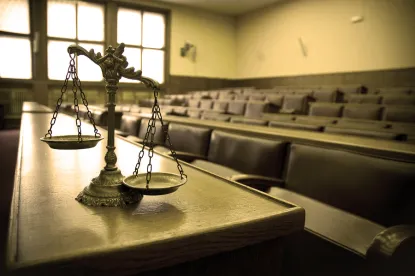In the spirit of the upcoming Super Bowl, it is important to keep in mind certain rules of play regarding forfeiture of arguments in federal courts of appeals. The Tenth Circuit reiterated two such rules in recent opinions. In one, the court held that a plaintiff’s argument may be forfeited as against one defendant and not as against another defendant when the plaintiff gives varying degrees of specificity and attention to the argument among the defendants. In the other, the court reaffirmed the pressed-or-passed-on rule, holding that an argument is not forfeited when a party fails to press (i.e., raise) it in the lower court, but the lower court passes on the issue anyway.
The Tenth Circuit dealt with the first rule, how to fumble your argument, in In re Rumsey Land Co., No. 18-1452, 2019 WL 6974286 (10th Cir. Dec. 20, 2019). There, the plaintiff sued two defendants, RLH and PBT, for fraudulent concealment, alleging that each failed to disclose a loan purchase agreement that affected the sale price of the plaintiff’s property in a bankruptcy proceeding. RLH filed a motion for summary judgment arguing that it owed no duty to disclose the agreement to the plaintiff. PBT later joined the motion.
Whether the defendants had a duty to the plaintiff to disclose the existence of the purchase agreement was a factual question that required analysis of the relationship between the plaintiff and each defendant. In response, however, the plaintiff offered detailed factual bases for why RLH owed it a duty to disclose, but submitted only non-factual and vague bases for PBT’s duty to disclose. The district court granted summary judgment for both defendants.
In affirming, the Tenth Circuit held that the argument as against RLH was preserved, but the same argument was forfeited as against PBT. The court noted that because “PBT joined RLH’s motion for summary judgment, [the plaintiff] could have advanced arguments in district court about both Defendants in its opposition brief.” Instead, however, the plaintiff’s argument focused only on RLH’s conduct, identifying facts that might have triggered a disclosure duty from RLH. In contrast, references to PBT’s duty were “vague and ambiguous” or offered in a “perfunctory and underdeveloped manner.” Because the plaintiff also failed to argue plain error on appeal, the argument was unreviewable as against PBT.
The Tenth Circuit dealt with the second rule, how the court may recover your fumbled argument, in Tesone v. Empire Marketing Strategies, 942 F.3d 979 (10th Cir. 2019). There, the plaintiff sued the defendant for employment discrimination under the Americans with Disabilities Act (ADA). As the case drew near to trial, the plaintiff’s counsel was told by both opposing counsel and the magistrate judge assigned to the case that expert testimony was necessary for the plaintiff to establish disability under the ADA. On summary judgment, however, the plaintiff made no argument regarding the necessity of expert evidence to prove her disability, and instead argued that the non-expert evidence she presented was sufficient to establish the claim. Because the plaintiff failed to present expert medical evidence, the trial court granted summary judgment in favor of the defendant.
On appeal, the plaintiff argued that she was not required to present expert testimony in furtherance of her ADA claim. While acknowledging that, ordinarily, the plaintiff’s failure to raise this argument in the trial court would result in forfeiture, the Tenth Circuit held that the issue was nonetheless preserved because the district court “explicitly” determined that expert testimony is “required to establish disability under the ADA.” It explained that the forfeiture rule does not apply when a district court “passes upon” an issue by applying “the relevant law to the relevant facts” and “considers and resolves an issue of law on the merits.” In this way, the appellate court has power to review “an issue not pressed so long as it has been passed upon.”
Tips:
-
Although the pressed-or-passed-on rule may provide a safety net for unpreserved arguments, do not rely on it at the trial level and make all viable arguments to the trial court.
-
For common arguments among opposing parties, make specific, fact-based arguments as to each party to which the argument is applicable in order to ensure the issue is preserved as against each party.
-
If there is any doubt on appeal as to whether the issue was fully preserved below, urge fundamental or plain error and show why the opposing party is not prejudiced by the appellate court’s review of the issue.




 />i
/>i
